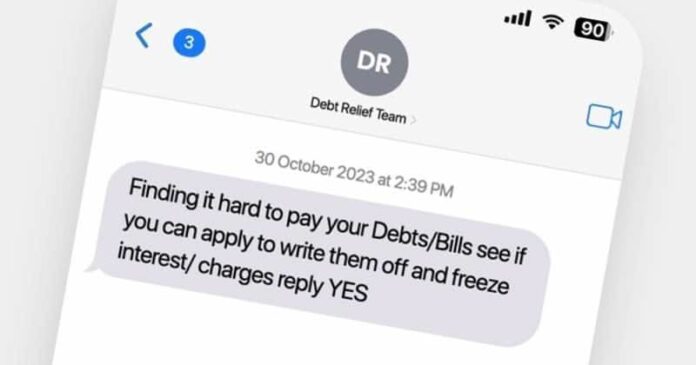The UK Information Commissioner’s Office (ICO) has levied a fine of £200,000 (US $260,000) against a sole trader who sent almost one million spam text messages to people across the country – many of whom were already struggling with debt.
According to an ICO press release, Bharat Singh Chand of Burry Port, Carmarthenshire, was behind an operation that used a “SIM farm” – capable of sending thousands of texts in quick succession – promoting “debt solutions” and “energy-saving grants.”
The ICO says that the spam campaign targeted people “at greater risk of harm,” particularly those facing financial hardship. Many of the spam messages made promises to “freeze interest and charges” or “write off debts.”
An example message read:
“Finding it hard to pay your Debts/Bills see if you can apply to write them off and freeze interest/ charges reply YES.
When recipients replied “YES” to the SMS message – perhaps in desperation or confusion – they were called back by individuals pretending to work for a company calling itself “The Debt Relief Team.”
In all 966,449 unsolicited messages were said to have been sent between December 2023 and July 2024, with no way for recipients to opt out.
The ICO says that in reality, “The Debt Relief Team” was not a legitimate company, and that Chand used false business names and used unregistered mobile numbers in an attempt to avoid detection.
Chand came to the ICO’s attention following intelligence it gathered through several previous investigations, including one against a Daniel George Bentley (also known as Daniel George), who is said to have sent texts on behalf of Chand and provided advice about using a SIM farm. Bentley’s operation is said to have sent over 2.5 million unlawful texts promoting loans and credit services.
UK regulations forbid organisations from sending marketing texts unless the recipient has given specific, informed consent – or if there is an existing customer relationship. In this case, the ICO says it found no evidence of either.
“These text messages not only caused a nuisance to many thousands of recipients, but were clearly targeted at people who are at greater risk of harm; such as those facing financial hardship,” said Andy Curry, head of investigators at the ICO. “Chand showed blatant disregard of the law and attempted to mislead the ICO during our investigation. We’ve taken action to protect the public from the stress and misery these messages can cause.”
Cases like these highlight a growing problem with small-scale but highly automated text spam operations. These “micro-spammers” are cheap, mobile, and difficult to trace — but rely upon the same tactics seen in larger fraud and phishing schemes.
For legitimate businesses, the message is clear: SMS text marketing remains lawful, but only if it is transparent, and permission has been properly granted and documented. Even sole traders are expected to maintain compliance records proving how and when consent was obtained.
In addition, the ICO stresses that hiding or disguising the sender’s identity is itself an offence under the UK’s Privacy and Electronic Communications Regulations (PECR).
And clearly, deliberately targeting financially vulnerable people with fake debt-relief offers is even harder to excuse as it preys on distress.
Whether you are a multinational or a one-man band with a SIM farm, the same rules apply: get consent, be honest about who you are, and stop sending junk messages.
And if you receive a spam text message forward it to the UK’s spam reporting service at 7726. Chand’s spam campaign resulted in 19,138 complaints according to the ICO.
Chand has appealed the ICO’s decision.
